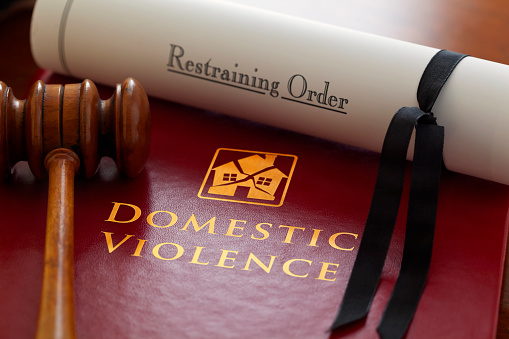
Mathews Family Law and Mediation Services were established more than fourteen years ago as a boutique family law firm. Our offices are located in the inner Melbourne suburb of Toorak.
Our team of lawyers is experts in Family Law and Family Law Mediation. We have extensive experience and knowledge that allow us to provide an integrated approach to the complex range of issues faced by our clients. We are in a unique position whereby our family dispute resolution practitioners (FDRP) and mediators have also accredited family law experts; this ensures we bring a higher level of expertise to all our mediations.
Unlike many other family law firms, Mathews Family Law has a genuine commitment to alternative dispute resolution. This commitment is evident in the diverse range of dispute resolution options and services we offer that clients are unlikely to find anywhere else
Top Divorce Lawyers in Australia
We are passionate and dedicated to providing the best possible Family Law service in Melbourne. We have worked hard to gain expertise in all areas of family law, including complex international parenting and financial matters.
We can guide you through a wide range of issues related to legal separation in Australia. This commitment ensures we are at the forefront of family law developments in Melbourne. Vanessa Mathews was one of the first accredited family law specialists also to become accredited as an FDRP and Mediator. The Mathews Family Law team continues to provide professional development services for accountants, financial advisors and mental health professionals. We are vigorously committed to continuing to provide community service for a wide range of new initiatives. We provide all the personal service you expect of a boutique law firm with all the experience and knowledge you expect to find in a larger firm.
A firm with a strategic vision and the leadership to effect change in culture, strategy and business growth.
Mathews Family Law’s vision has always been to provide affordable access to the highest quality family law services and essential legal information. We have embraced the use of technology to support this goal. By using online platforms, Mathews Family Law can reach a much wider audience (including overseas), vastly improving the efficiency of our internal processes which results in a decrease in costs to our clients.
Via our website and Facebook page, we offer an extensive library of free explanatory videos, Facebook live recordings, downloadable e-books, radio interviews and blog articles. A valuable resource for those seeking detailed information on the public’s most frequently searched topics.
In 2011, MFL pioneered online divorce applications with www.divorce-online.com.au. and has since developed its web-based family law pathway. This process allows clients to enter their details online and obtain a personalized preliminary report, free of charge. Should the client engage the firm, this background information is used to prepare for the initial meeting with the client’s data automatically populated into various documents.
Other recent IT enhancements include interactive online forms, options to attend meetings, mediation and FDR via webcast, online payment portals and handy calculators.
All our clients benefit from clear, fully itemized invoices and trust statements with every interim invoice along with pre-payment of disbursements.
Although a boutique law firm, Mathews Family Law can offer the full breadth of family law services that all clients desire. Our clients are not left having to consult across multiple organizations to get the outcome they desire. Our services include the full range of family law dispute resolution services; such as negotiation, mediation, FDR and litigation.
MFL can also provide a secondary consultation role with institutional clients and allied professionals; this includes Relationships Australia, CatholicCare and CPAs/IPAs.
MFL is continually seeking to improve its services and enhance its performance. The firm’s principal, Vanessa Mathews, regularly consults with external experts to review the firm’s strategy, structure and operations and never shies away from creating new processes and adopting change.
Mathews Family Law Accreditations and Associations.
- Accredited by the Law Institute of Victoria
- Members of the Law Institute of Victoria, Family Law Section
- Members of the Law Council of Australia, Family Law Specialization Advisory Committee
- Members of Relationships Australian Family Lawyers Panel
- Fellow of the International Academy of Family Lawyers
FDRPs and Mediators at Mathews Family Law are:
- Accredited by the Attorney General of Australia
- Accredited by the National Mediation Accreditation system
- Members of the Australian Institute of Family Law Arbitrators and Mediators
- Members of the Resolution Institute
- Members of the Relationships Australia ‘Access Resolve’ Property Mediation Program
Divorce Law in Australia
Divorce law in Victoria is the same as in other states in Australia (except Western Australia). The Family Law Act (1975) applies to all Australian states and territories except Western Australia. A judge deciding on a parenting or financial matter will follow the same rules, procedures and legislation to make their decision. The unification of laws across all the states (except Western Australia) means that Family Court orders obtained in one part of Australia will be enforceable anywhere else in Australia. The child support legislation also applies in Melbourne & across Australia. Intervention orders are also recognized and enforceable across state and territory borders.
Under Australian Law, you can apply for divorce after separating for at least one year. The Family Law Act (1976) instigated the ‘no-fault’ system of divorce in Australia. The only condition required is that the marriage has irretrievably broken down. The facts about who is responsible for the breakdown of the marriage are not relevant. If dependent children under the age of eighteen are involved, a divorce will only be granted by the court if proper arrangements have been made for their welfare. If you have any queries about divorce law in Australia, get in touch with us.
Some Common Family Law Myths
That the mother is favored in parenting matters:
There is no presumption that a mother or father is a ‘better’ parent. The child’s ‘best interests are the paramount consideration.
That same-sex parents are treated differently from opposite-sex parenting matters.
There is no sexuality-based presumption or laws that are applied to same-sex parents. Again, the child’s ‘best interests is the paramount consideration.
The children will live 50/50 with each parent
There is no ‘one size fits all’ parenting presumption. The child’s ‘best interests are the paramount consideration.
The asset pool will be divided 50/50.
There is no ‘50/50’ asset division presumption. The asset pool will be divided according to the particular circumstances of each case, including the various contributions made by each of the parties and their future needs.
I have to be divorced before I can apply for a property settlement.
No, you may apply for a property settlement any time after separation and before the divorce (and up to 12 months after divorce).
Pre-marriage agreements are not worth the paper they’re written on
‘Pre-nups’ are enforceable provided they have been prepared in accordance with the strict legislative requirements.
I don’t live with my partner full time so we are not in a de facto relationship
The amount of time you live with your partner is not the only criteria the court will consider when determining if a de facto relationship existed. A de facto relationship may be found to have existed where the parties lived with each other on a part-time basis only.
Experienced Divorce Lawyers in Melbourne Who Take Their Corporate Social Responsibility Seriously
Mathews Family Law firmly believes in its corporate social responsibility. We also believe that corporate social responsibility is best demonstrated via actions rather than words. The firm’s Principal, Vanessa Mathews, has a Degree in Social Work from Melbourne University. She is passionate about providing low-cost and pro-bono access to information and justice. Ensuring every demographic in the community is well supported and has access to expert Family Law advice.
MFL maintains four content-rich websites, with informative videos, a Family Law Library of articles and videos, online calculators, chat and applications processes, all provided free of charge. Regular Facebook Live videos, e-newsletters and other social media posts also disseminate valuable information at no cost, and through channels that are easy to access by the wider public.
We also have several other measures that provide affordable access to the firm’s services – free initial telephone consultations, reduced fixed-fee initial consultations, fixed-price services and a choice of unbundled or full-service delivery options.
MFL is involved in the LIV Referral Service and provides education to other professionals. We actively work to create a strong Family Law community, with representatives participating in the following organizations: Relationships Australia Family Lawyers Panel; LIV Specialist Committee; International Academy of Family Lawyers.
Award Winning Melbourne Family Lawyers
Mathews Family Law is a multi-award-winning family law firm operating out of the Melbourne inner suburb of Toorak. Some of the recent awards won by the firm include:
- Winner – Boutique Family Law Firm of the year in Australia, Global Law Experts
- Winner – Family Law Mediator of the year in Australia, Global Law Experts
- Finalist – Law Institute of Victoria ‘Boutique Law Firm of the Year Award’
- Recommended – Family Law Firm, Doyles Guide
- Recommended – Family Law Mediator, Doyles Guide
- Leading – Parenting Lawyer, Doyles Guide
- Number One – Family Law Firm on ‘Three Best Rated’
If you are looking for Melbourne’s best family lawyers look no further than Mathews Family Law, Book a Free consultation today to start the process.















